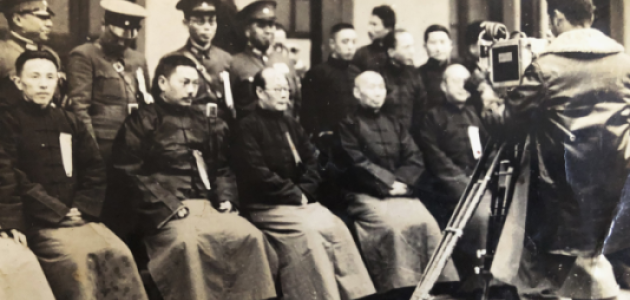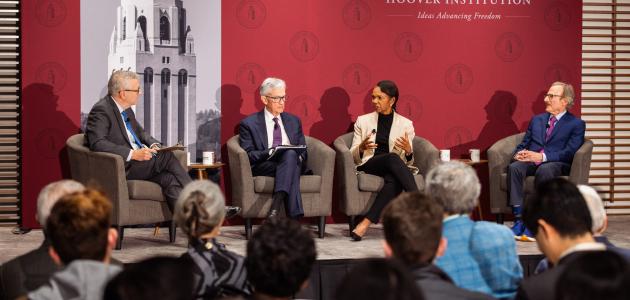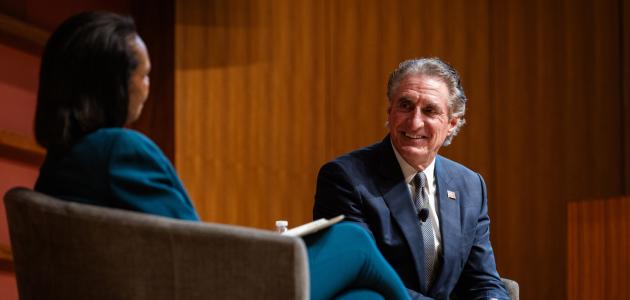Welcome to the Hoover Institution’s monthly briefing on national security. This month we address the history of unmanned technologies; the continued presence of US naval and air forces in Europe; a more viable strategy in the Middle East; challenges to traditional naval power; America’s importance in the Western Hemisphere; new threats to a preeminent US Navy; and the logic of preemptive action. Finally, the Hoover Library & Archives celebrates the 250 anniversary of the US Army.

The Practice of War
In a new podcast series, Hargrove Hoover Fellow Jacquelyn Schneider and her coauthor Julia Macdonald discuss their new book, The Hand Behind Unmanned: Origins of the US Autonomous Military Arsenal. Contrary to what might be assumed, much of the trajectory in the development of unmanned systems was not shaped by battlefield data but by the interaction of forces at work behind the scenes—from armed services competition to the influence of policy entrepreneurs. Two core beliefs, those of force protection and casualty aversion, have shaped the emphasis on certain technologies over others, with the Air Force playing a dominant role. Schneider and Macdonald have written a strongly historical book, looking at unmanned technologies over time to determine how we got to today. There is a particular focus on the role of Andy Marshall, director of the Department of Defense's Office of Net Assessment, and the network of influencers he fostered, as well as the importance of “internal champions” in a defense structure where service identity is strong and aggressively territorial. The authors recognize war as the ultimate arbiter, from Vietnam to Ukraine— with 9/11 derailing that trajectory to a counter-insurgency track. Schneider and Macdonald have written a book for practitioners, to create awareness of how certain beliefs have come about, the biases inherent in those beliefs, and how to correct for those biases going forward. But it is also a fascinating journey into the many forces at play in shaping our approach to war.

Stay the Course
In an interview with the Center for European Policy Analysis, Hoover’s Fouad and Michelle Ajami Senior Fellow H.R. McMaster lays out the case for maintaining the US air and naval presence throughout Europe. Case in point was the speed of our response to the attacks of 9/11. In adopting the characterization of Vladimir Putin’s expansion strategy as “probing,” McMaster emphasizes the importance of American troop presence in the continent’s farther reaches, particularly the eastern flank of NATO-affiliated nations. Perception is key, and weakness invites incursion. Wargames “have highlighted the need to keep improving our ability to deploy rapidly to prevent war or respond to aggression.” McMaster further argues that this is a global competition—not a conflict confined to one area of the world—that brings together on one side Russia, China, Iran, and North Korea. We need, therefore, “to recognize that this Axis of Aggressors poses a threat to the free world.”

Smart Strategy in the Middle East
Hoover’s W. Glenn Campbell Research Fellow Kiron Skinner asserts that Trump is the first president of the new century to turn away from the Global War on Terror toward a more viable strategy in the Middle East. Boldly lifting sanctions on Syria will weaken Russia and Iran in the region. Over $1 trillion worth of deals in the Gulf help to cement ties there. Skinner writes that the president “has deftly chosen to prioritize economic prosperity, trade, AI, and advanced technology as opposed to the tired, ineffective discussions about the plight of the Palestinians.” The focus on the moderate states of the Gulf reinforces US support for Israel. And bringing the two together, as in the Abraham Accords, puts “the onus for regional security, stability, and prosperity” on a more solid footing.
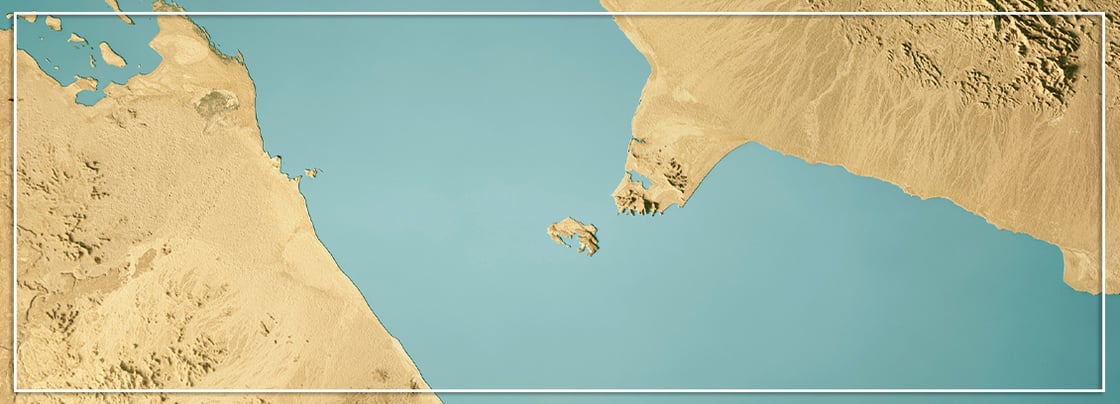
The Land and the Sea
Hoover‘s Annenberg Distinguished Visiting Fellow Admiral James O. Ellis outlines the challenges that face both naval and land powers in light of recent technological advances in weapons of warfare, as well as the availability of those weapons to hostile forces. What remains unchanged is that sea lanes are still the most efficient means of transporting large quantities of goods. Protection of critical choke points is crucial for maritime trade. Two elements have been brought to the fore that complicate and challenge the current methods for guarding commercial routes: the increasing sophistication and reach of land-based weapons and the ability of nonstate actors to utilize these often relatively inexpensive means “to hold global commerce hostage.” In terms of open conflict, “the ascendancy of land-based maritime area denial capabilities presents significant challenges to traditional naval power projection concepts.” Naval powers, as well as land powers, must adapt to this new reality.

Our Western Hemisphere
America’s regional stability is a mandatory foundation for maximizing its role in the world, writes Hoover Fellow Joseph Ledford. The Monroe Doctrine is still viable today, and America ignores its neighbors at its own peril. As the author writes, “Uncle Sam’s absence in the Americas grants our rivals greater leeway to displace the United States and further their malign influence in the Western Hemisphere.” Secretary of State George Shultz cautioned that America must prioritize its neighborhood, and President Trump’s foreign policy team is heading in the right direction, Ledford writes. Past administrations have neglected allies and potential friends in our region to the detriment of our greater global policy. Past neglect has invited China, Russia, Iran, and North Korea to push their initiatives and their agendas into our hemisphere. As Ledford concludes, “Cultivating an integrated and secure hemisphere is a long-term objective that will span multiple administrations, but it can begin now.”
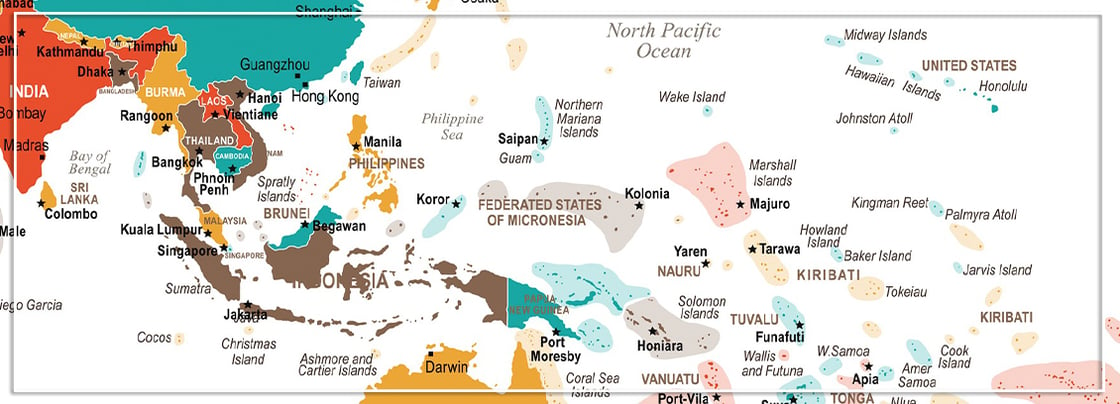
Dominion of the Seas
Hoover’s Robert and Marion Oster Distinguished Military Fellow Admiral Gary Roughead argues in support of recent executive orders that seek to restore America’s maritime dominance. While the Indo-Pacific and Arctic regions deserve greater focus than in the past, “the maritime Middle East will grow in strategic importance in the coming years.” The regions of the Red Sea and the Eastern Mediterranean have been marred by conflicts that highlight the crucial nature of the commercial linkages of the Indo–Middle East–Africa- Europe nexus. Navies must be prepared to protect and expand commercial interests, and both must be enhanced if China is not to dominate the sea. Russia, Iran, and Türkiye have introduced unmanned and defense systems that underscore the need to develop responses. These challenges should be “a catalyst for a cooperative regional, indeed global, approach to future commercial opportunities and the supporting naval obligations to safeguard them.”

History in Focus: US Army Turns 250!
June 14, 2025, marked the 250th birthday of the US Army, the oldest branch of the American armed forces. To commemorate this anniversary, the Hoover Institution Library & Archives is featuring the papers of Ernest Fred Easterbrook, executive assistant to General Joseph W. Stilwell, who served in the China-Burma-India (CBI) theater during World War II. As commander of the 475th Infantry Regiment, Stilwell led his troops behind enemy lines to clear northern Burma and reopen the Burma Road. View transcripts of Easterbrook’s 1944–45 diaries chronicling the CBI theater online through our digital collections portal.
For more insight on important national security issues visit www.hoover.org/focus-areas/determining-americas-role-world



















